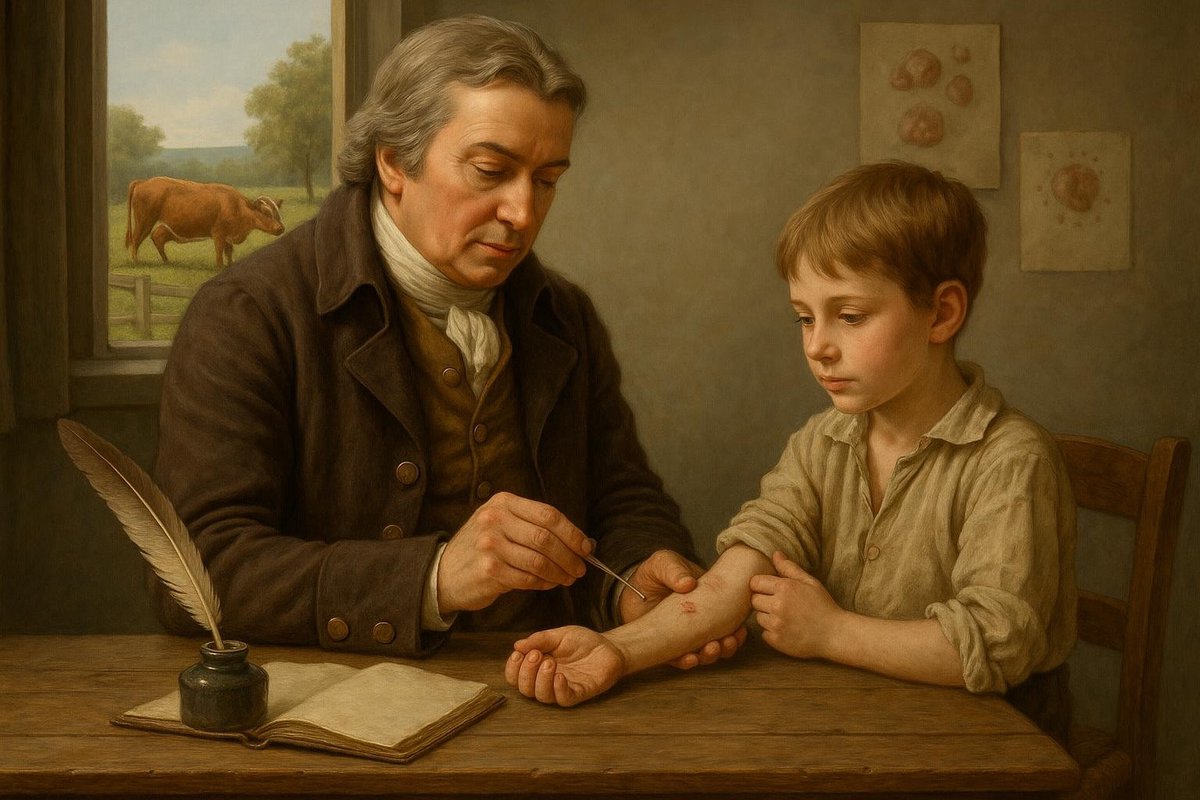
Vaccination, a cornerstone of modern medicine, represents one of the most transformative breakthroughs in public health. But how did this ingenious idea come to fruition? To understand why the discovery of vaccination mattered, we must delve into the historical context and intellectual lineage that paved the way. This journey not only highlights the innovation but also reflects the blend of science and cultural progress that characterized a pivotal moment in history.
The Early Roots of Inoculation
Before the term “vaccination” entered the lexicon, there were ancient methods of disease prevention. Interestingly, practices resembling vaccination date back centuries, long before modern science took root.
- In China around the 10th century, people practiced variolation, a precursor to vaccination, using material from smallpox sores.
- The method was rooted in the idea of building immunity by exposing individuals to a less potent form of the disease.
- Such practices spread to the Ottoman Empire, influencing European thought during the Enlightenment.
Of course, the idea was not immediately accepted. It required the Enlightenment’s emphasis on empirical observation and reason. Without this intellectual shift, variolation might have remained a curious regional practice rather than contributing to a global health transformation.
Edward Jenner’s Revolutionary Experiment
Fast forward to the late 18th century, and we find ourselves in England, where Edward Jenner emerged with a groundbreaking insight that forever changed medicine.
- In 1796, Jenner observed that milkmaids who contracted cowpox did not catch smallpox.
- He hypothesized that exposure to cowpox provided protection against the more deadly smallpox.
- His experiment with James Phipps, an eight-year-old boy, confirmed his theory, leading to the widespread practice of vaccination.
Jenner’s work did not happen in isolation. It was a culmination of centuries of observation and the influence of Enlightenment thinking, which emphasized empirical evidence and experimentation. His ability to synthesize previous knowledge with new insights epitomized the era’s spirit of inquiry.
The Spread and Impact of Vaccination
Following Jenner’s pioneering work, the concept of vaccination spread rapidly across the globe, fundamentally altering public health strategies.
- Medical institutions began to adopt and promote vaccination, leading to the eventual decline of diseases like smallpox.
- Cultural exchanges through trade and colonial expansion facilitated the spread of vaccination techniques.
- The success of vaccination campaigns in the 19th century laid the groundwork for modern immunology and disease prevention.
As time goes on, the ripple effects of Jenner’s discovery are unmistakable. Vaccination began a legacy of scientific advancements that continue today, demonstrating how a single idea can resonate throughout history, saving millions of lives.
Contemporary Relevance and Challenges
In the 21st century, the relevance of vaccination remains undiminished, yet challenges persist. How do modern societies navigate these complexities?
- Public health initiatives now face the task of overcoming vaccine hesitancy, fueled by misinformation.
- The COVID-19 pandemic underscored the importance of vaccination in rapidly responding to global health crises.
- New technologies are paving the way for innovative vaccines targeting a broader range of diseases.
No wonder vaccination remains a topic of keen interest and debate. The challenge lies in balancing scientific progress with cultural and ethical considerations, ensuring that vaccination continues to serve as a protective shield for humanity.
In conclusion, the discovery of vaccination was more than just a medical breakthrough; it was a testament to human ingenuity and perseverance. As we continue to face new health challenges, the lessons from the past remind us of the power of innovation guided by science and reason.
Fuel Someone Else’s Curiosity
If you found this exploration into the history of vaccination enlightening, why not share it with your friends and followers? By spreading knowledge, you help spark curiosity and foster a deeper understanding of how our past shapes the future. Let’s keep the conversation going!

Leave a Reply